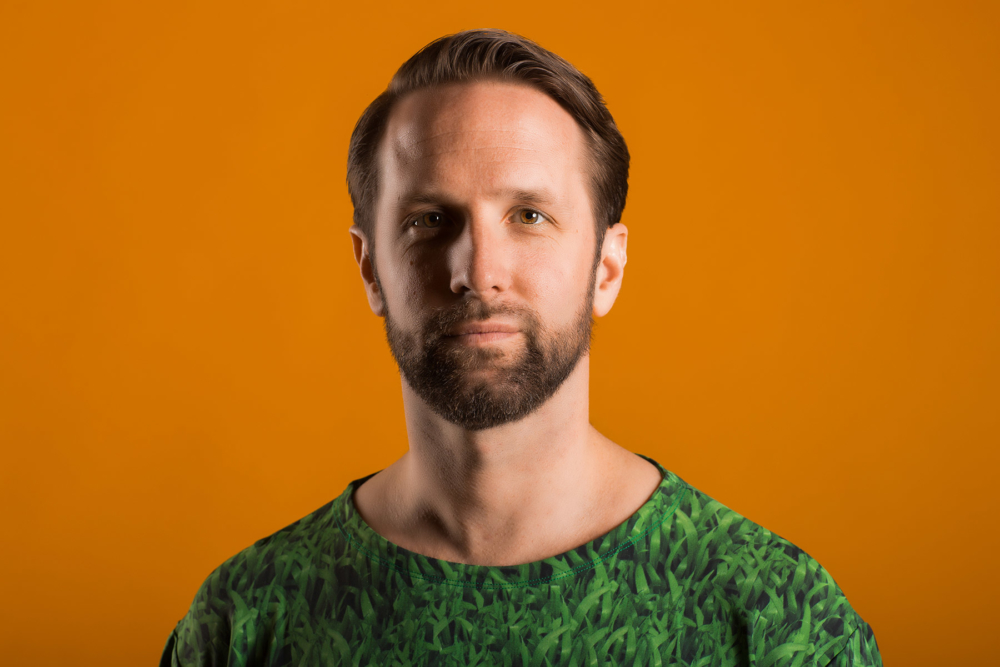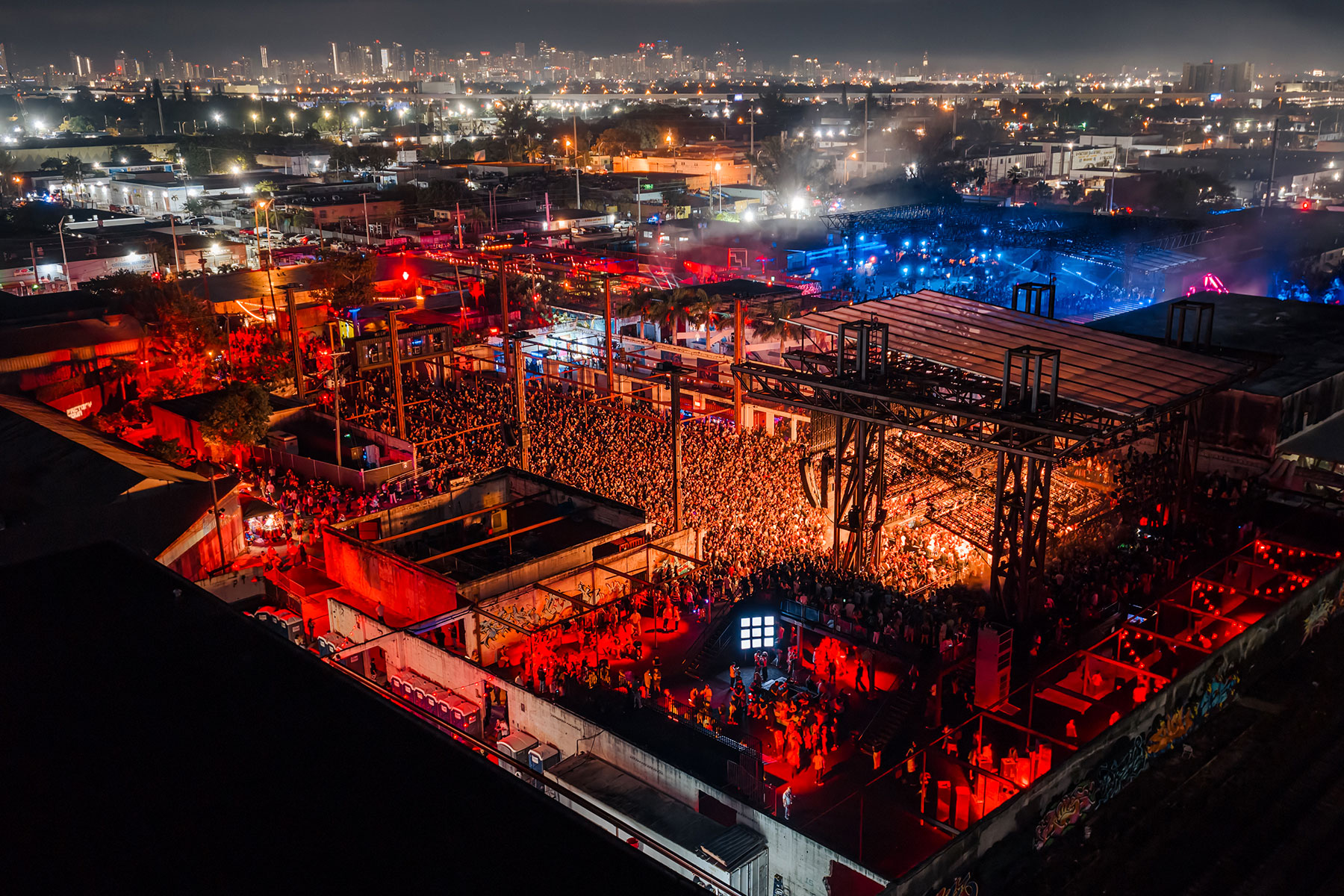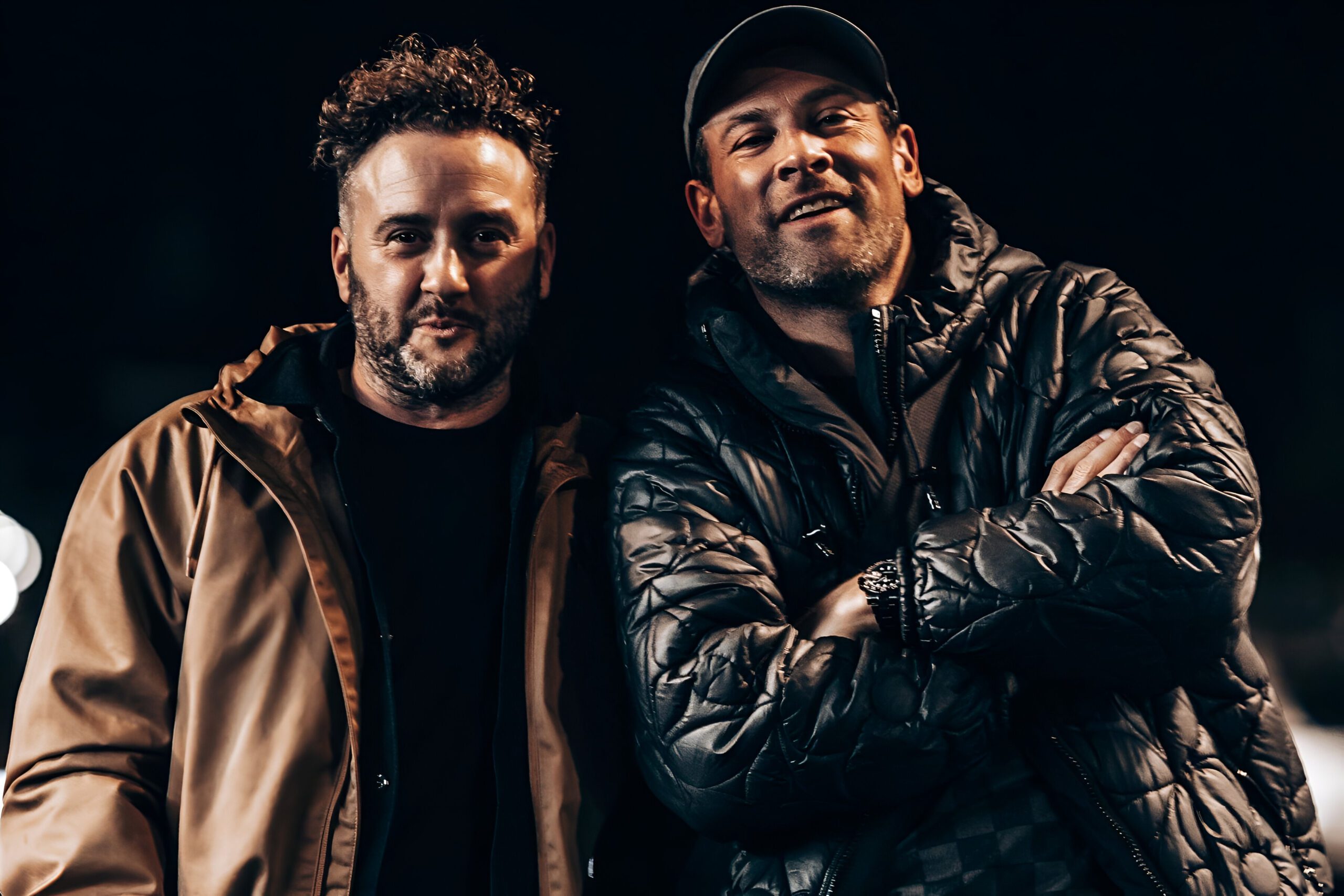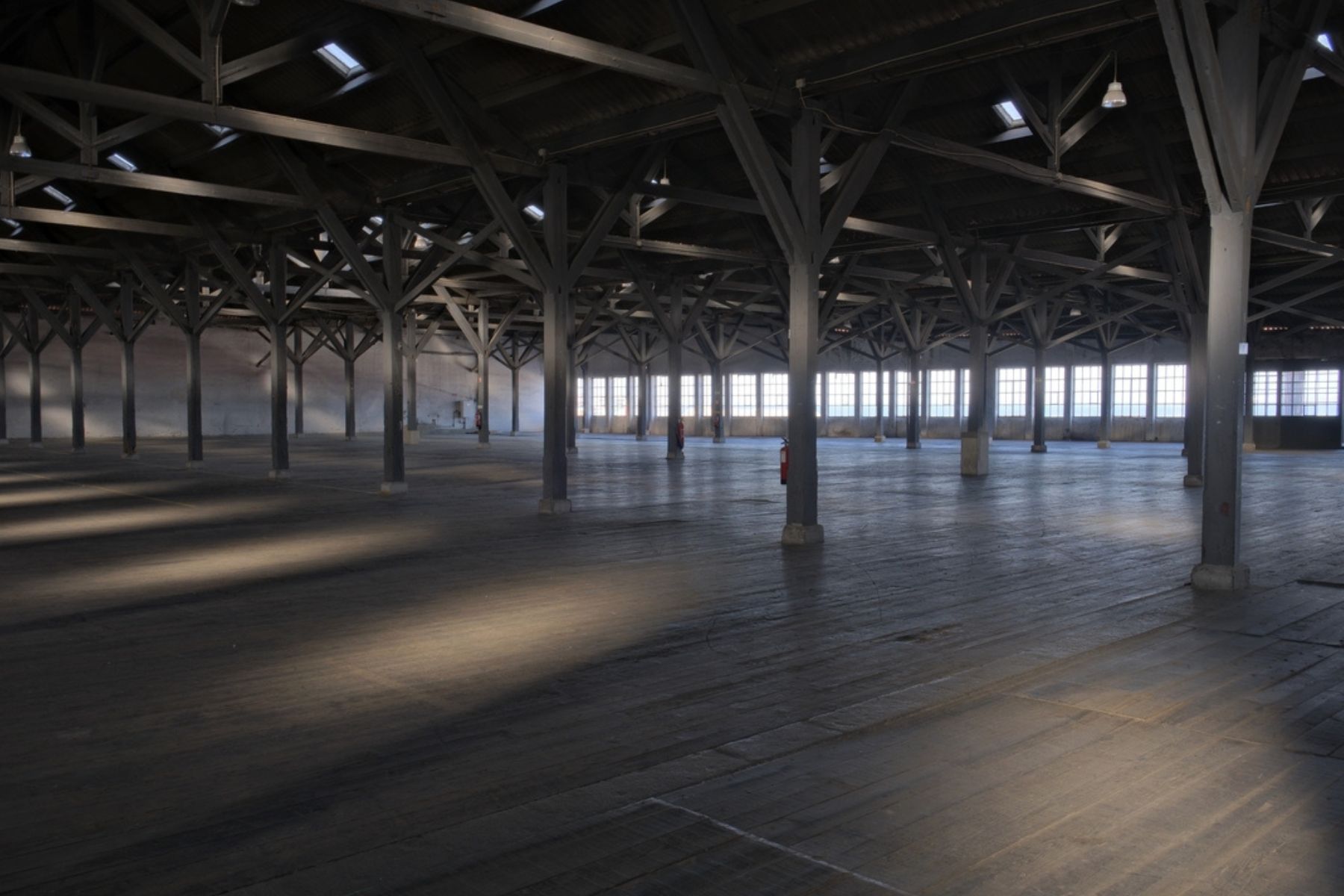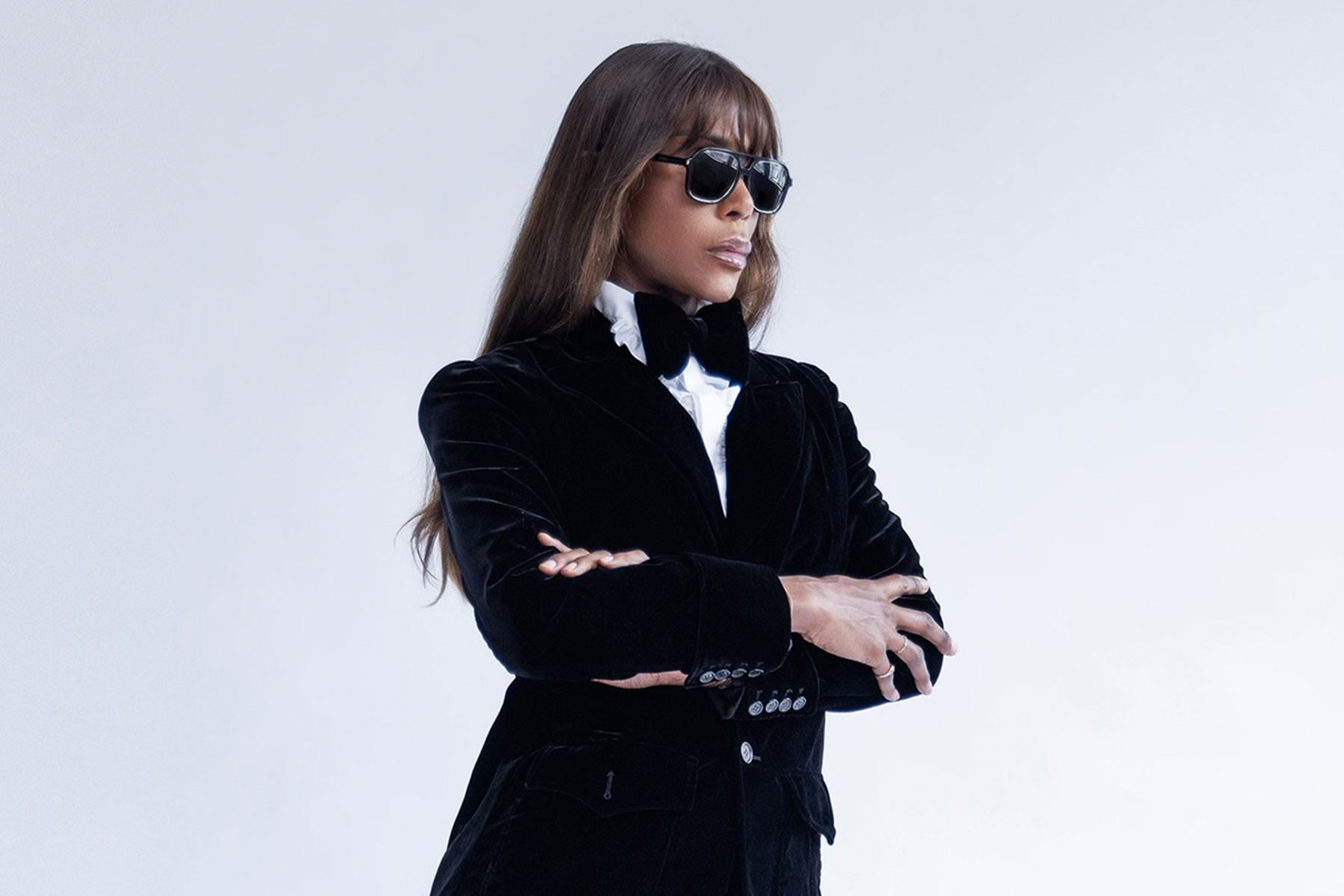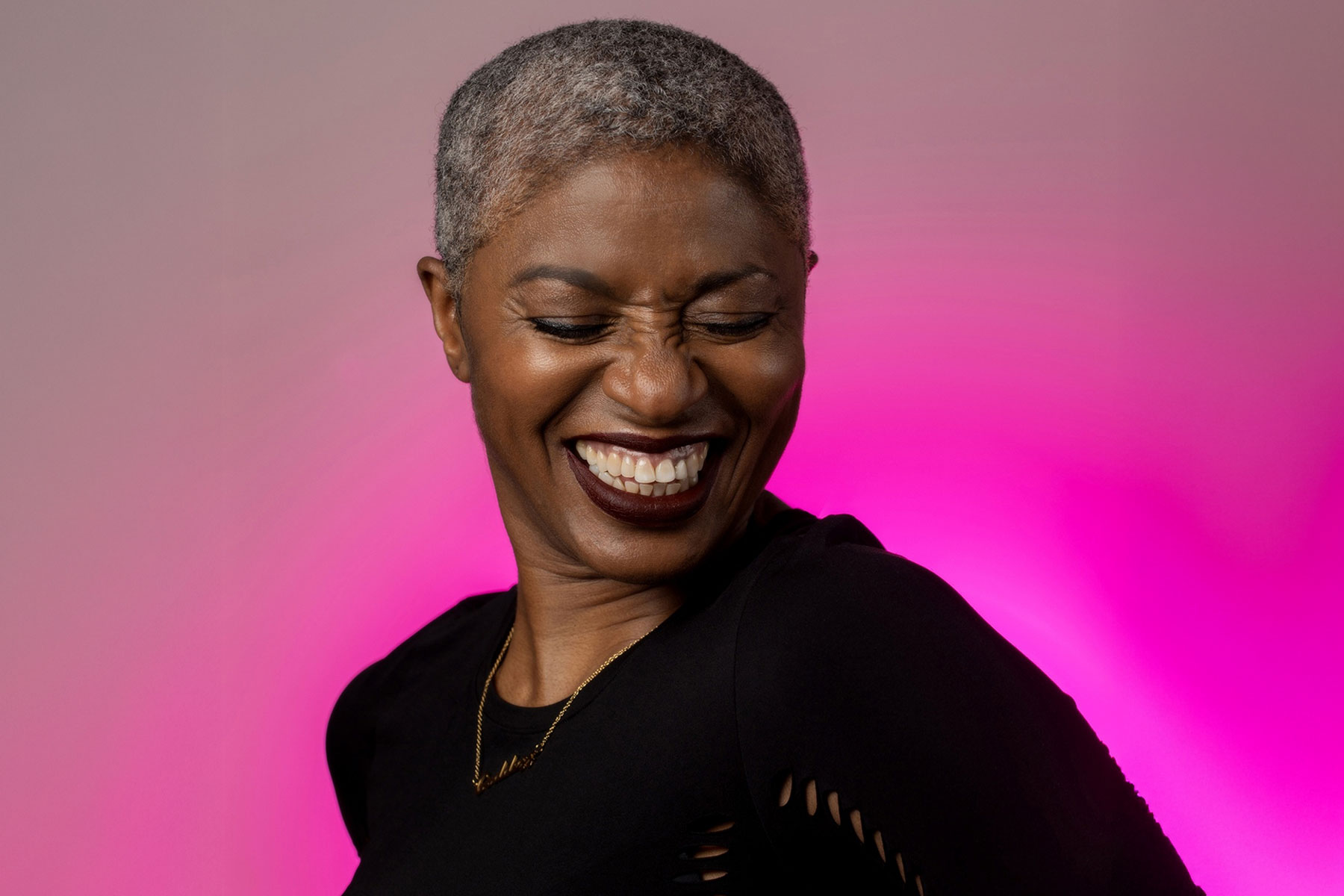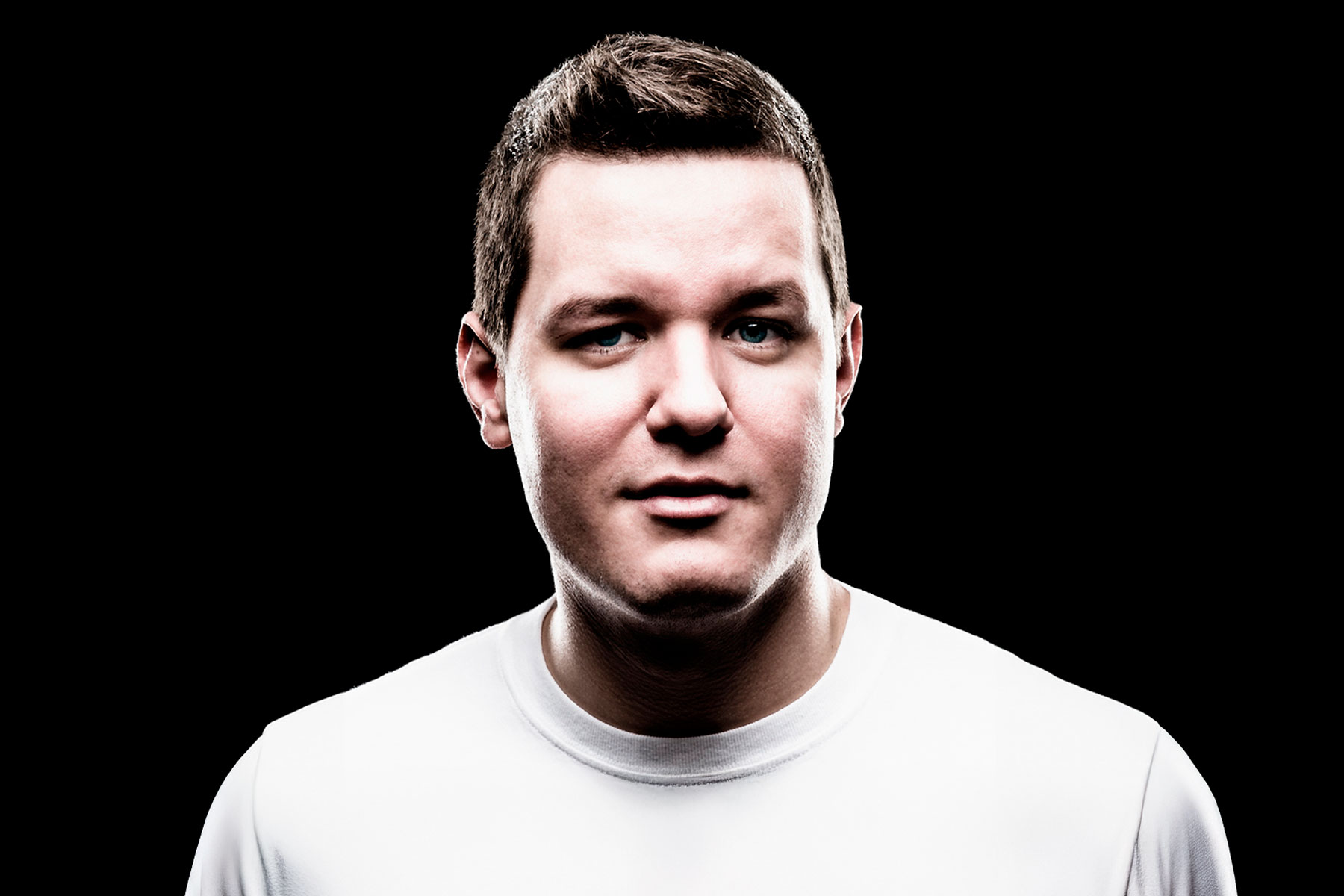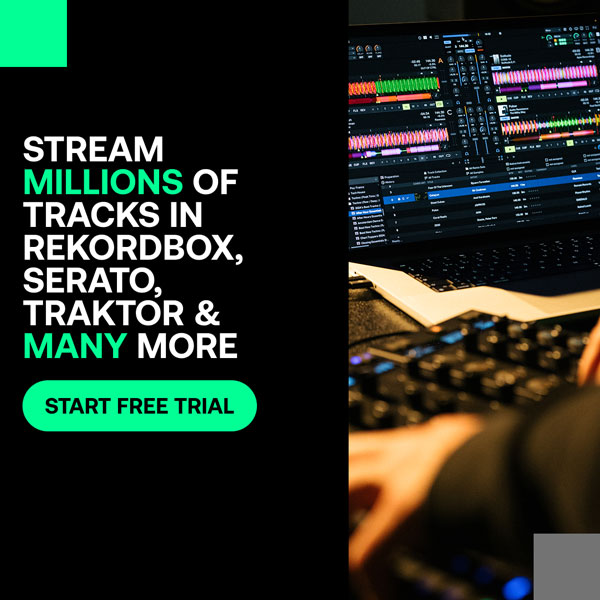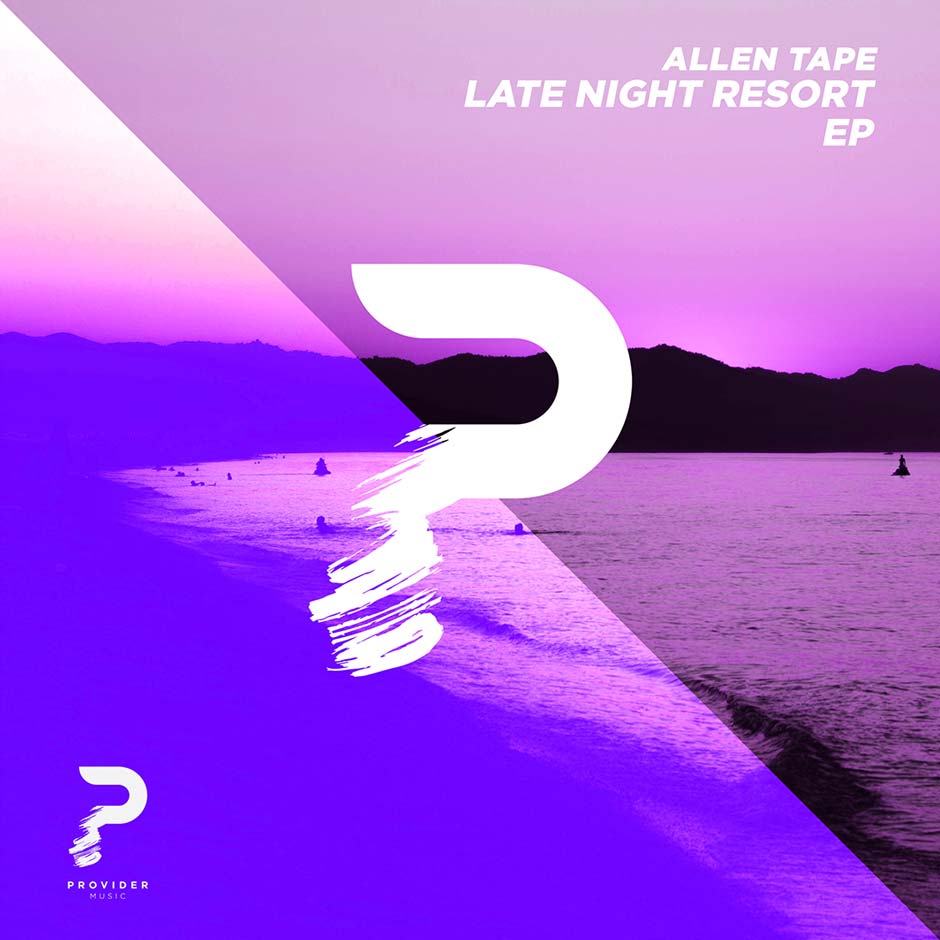Ryan Crosson is an artist with a multifaceted musical identity, blending influences from Motor City, Berlin, and London. His innovative tracks on labels like Wagon Repair, M_nus, Spectral Sound, and his own Visionquest have gained global recognition.
Photo credit: Ryan Crosson – Official
While rooted in house and techno, Ryan’s production and sampling practices draw inspiration from musique concrète, Downtown New York funk, and East African jazz. Growing up surrounded by post-apocalyptic landscapes, dark warehouses, and the sounds of Plastikman, Matthew Dear, Magda, and Ricardo Villalobos, Ryan has developed a unique musical vocabulary that positions him among the pioneers of forward-thinking techno. In recent years, his productions have extended beyond the dance floor, exploring downtempo and ambient styles.
Ryan has just released his latest EP titled ‘We Can Only Ever Be How We Are’. This EP showcases his collaborative abilities, featuring a diverse lineup of talented musicians including Ryan Cavanagh, Violeta Vicci, Emil Abramyan, Yonatan Levi, Henrik Raabe, and Greg Paulus. The album’s ten captivating tracks invite listeners into a mesmerizing soundscape, where the artist’s creativity flourishes.
EG had the opportunity to catch up with Ryan Crosson to discuss his latest production, as well as his future projects and endeavors.
EG: Hi Ryan! Welcome to EG. It’s a pleasure to have you here with us. How have you been? Where are you right now?
Ryan Crosson: Hello! It’s been a while, hasn’t it? I believe the last time we crossed paths was when I did an EG podcast six or seven years ago. My, how things have changed! That whole pandemic thing, and now I’m a father, which is quite wild to think about still. Life has really slowed down and for the better. Although I’m not as plugged into the local scene as I was pre-pandemic, I feel much healthier and more patient. At the moment, I’m in my studio in Brooklyn, NY. I’ve been living in Brooklyn since the summer of 2015.
EG: It’s been a while! Congratulations on the upcoming release of ‘We Can Only Ever Be How We Are’! You must be very excited to finally share this one! What has the initial reception been like so far?
Ryan Crosson: Thank you! It’s been a long road, and yes, I am very excited for the album to come out this fall. I’m grateful for the patience and support from Matt, the FNTR family, Luke Insect, and all the artists who worked on the project. Ryan Cavanagh, Henrik Raabe, Emil Abramyan, Violeta Vicci, Yonatan Levi, Greg Paulus… they’ve all been so patient, and really, this album is a showcase of their talents. I just kind of pulled it all together. I cannot thank them enough. It’s been a slog to get the album out, but I think in the end, it has been worth the wait. Initial reactions have been really fantastic. Some people even thought I had quit music, to be honest, so coming back with an album that’s out of the norm and packed with so many great artists is a nice feeling.
EG: So, ‘We Can Only Ever Be How We Are’ has been in the making for the past decade, right? What does this one mean to you as an artist? What is the creative process for something that took so long?
Ryan Crosson: I started a few tracks ten years ago as a way to get away from the music I was normally making. These were started just after Cesar and I finished DRM, which sort of put me on that path of pushing myself away from dance EPs. Cesar and I never had a formula and were always open to taking our collaboration wherever our minds went. On DRM, we were collaborating with classically trained musicians and still dabbled with a few tracks that could be used in clubs. At the time, we felt quite strongly about the results, but most importantly, I think that planted a seed within each of us that there were further corners of our minds and musical tastes to explore. That’s where I got the bug to continue to work on more albums in that vein.
In the end, I would say I was actively working on the album for about three years once I picked things back up again in 2018/2019. Three years is still an awfully long time, but I’m happy to have gone through it, and it means the world to me that a label supports the project and wants to release it in album format. I continue to learn more about collaborating and recording other artists, which is a huge plus. It’s always good to be learning something new about your craft, regardless of how long you’ve been at it. The creative process really accelerated during the pandemic because a lot of the artists I was working with were based in NY, but it was all about going back to projects/tracks that I believed in and kept working on them over and over. Some people say ‘If it can’t be done in 4 hours or one day, you should just move on.’ I don’t work that way, or if I do, it’s rare. I need to play around, listen back, think on it, hate it, love it, hate it, and rework it again. I also had to figure out a way to find the right grit to link all the tracks. I said this in another interview, but I wanted to just put the right amount of distortion and texture on everything to pull it together.
EG: And, what can your fans expect to find on ‘We Can Only Ever Be How We Are’? Is there a concept running through the album?
Ryan Crosson: It goes back to something I mentioned earlier in the interview about making music that is not geared for the dance floor. What are the moods, feelings, and ideas outside of that club realm, and how is that reflected in each piece? There’s a lot of undulation over the course of a few years and collaborating with so many people. I guess I could break down the feelings and thought process of each track for myself, but that might be a disservice without the other artists also offering their input on their side of the coin. Their side of the collaboration.
When it comes to the album format, I want to explore where I am emotionally with complete disregard for how someone will accept it or if it will be noticed, played, etc. What is really inside and what has been there all along that I haven’t been able to communicate musically? How am I stressed or relaxed? Where are the people I am collaborating with in their lives, and how is our musical communication reflected in a track or song? How do we feel collectively, and how can that be expressed and interpreted into something we haven’t done yet? How can we be okay with the result of what comes out, whatever it may be? What is good to us? Satisfaction to us? Disappointment to us? Is that disappointment actually endearing and worth sharing to help inspire others? Those are only a few questions that are constantly running through my mind that I hope to reflect on this album. A tad dramatic perhaps when you write it all out, but that’s how my mind is working when it comes to an album.
EG: ‘We Can Only Ever Be How We Are’ also features a notable amount of collaborations. How did you know who was right for each piece? What was the collaborative process like?
Ryan Crosson: For some of the really old sketches, I knew I needed something there but wasn’t always sure what that sound was… other tracks were complete co-productions from start to finish. Carys Rose was a lot of fun because Emil and I were able to come up with that in almost one session on one day. Ryan also visited my studio quite a few times and those sessions were highly productive. I would always prefer to be in the studio with someone to build something from the very beginning, but in most cases, that’s not possible. I’m very fortunate to know quite a few people who are extremely talented at various instruments, but they don’t all live in the same place. It helped that I was familiar with everyone that I chose to work with or at least was one degree of separation, like with Violeta. I heard her work through Kate Simko’s London Electronic Orchestra project and felt strongly that she would be a great fit. Yonatan I had worked with before with Cesar on our Cerulean album, and Henrik has released multiple albums on Visionquest, so the connection was already there since like 2012 or something. Henrik is so good. So talented. Every artist on this album really has something special to offer this world, and I hope their work shines through on this album and people take notice for their sake. I’m grateful to work with such talent. The collaboration process with everyone was quite easy, and I think (or hope) there was mutual excitement, which led to positive results. I hope that all of the artists that contributed will feel good about what we’ve done 5/10/20 years from now.
“So coming back with an album that’s out of the norm and packed with so many great artists is a nice feeling”
EG: In your opinion, what are some key aspects to consider when collaborating with other artists? What is a “successful” collaboration?
Ryan Crosson: I like working with friends. I want to work with people I connect with instantly and can go to dinner and then have a late night/morning until 8 a.m. That’s just how it’s worked out for me, and I enjoy that process. I’ve been lucky enough to form friendships with people over time who are actually amazing musicians, and it just so happens they’re open to work with me. It probably seems like quite an obvious thing to work with friends, but it doesn’t always pan out, even with the closest of friends. It happens (shrugs). A key is finding people who are kind of on your level of focus and communication. Do you like each other? Do you both want to be there, and it wasn’t arranged by a manager or some contrived source? Are you there working for the same reasons and shared commonality in taste or persona? Can you communicate freely when you are uncomfortable or if a direction is going somewhere that turns you off, and how is that received and discussed? And, maybe most importantly, is it an easy vibe? Music and working together shouldn’t feel like pressure or a chore, it should just flow. If the vibe isn’t easy, that’s OK. Maybe it wasn’t meant to be at this point in time… but don’t try to force it because it will be reflected in the music.
EG: Right now, social media seems to be shaping careers in a way that the music, or the actual content can’t… What is your relationship with social media like? How do you navigate these murky waters?
Ryan Crosson: I’m happy that people have found a new way to make a living as entertainers, but unfortunately for me, I’m not one of those people. I don’t really navigate the waters so well and can only shamelessly self-promote to a point. I don’t post about personal stuff for the most part and try to just keep things about music. Some of my friends who never really took off have been able to leverage social media successfully both during and post-pandemic to great effect, and it’s really helped them break through. I support that 100% because I know these people have done the work for 10+ years and deserve their moment and deserve to be heard. I will say it is unfortunate to see promoters, clubs, and festivals relying on social media numbers to book out their calendars, but it’s a sign of the times and like… whatever, you know? On one hand, the casual fans/punters/strictly social followers will continue to fuel the new commercial electronic music machine. On the other, the seekers, the heads will always find the good stuff that they want. I have faith that the heads will always prevail because digging and seeking unique music is built into their lifestyle, and they’re in it for the long haul.
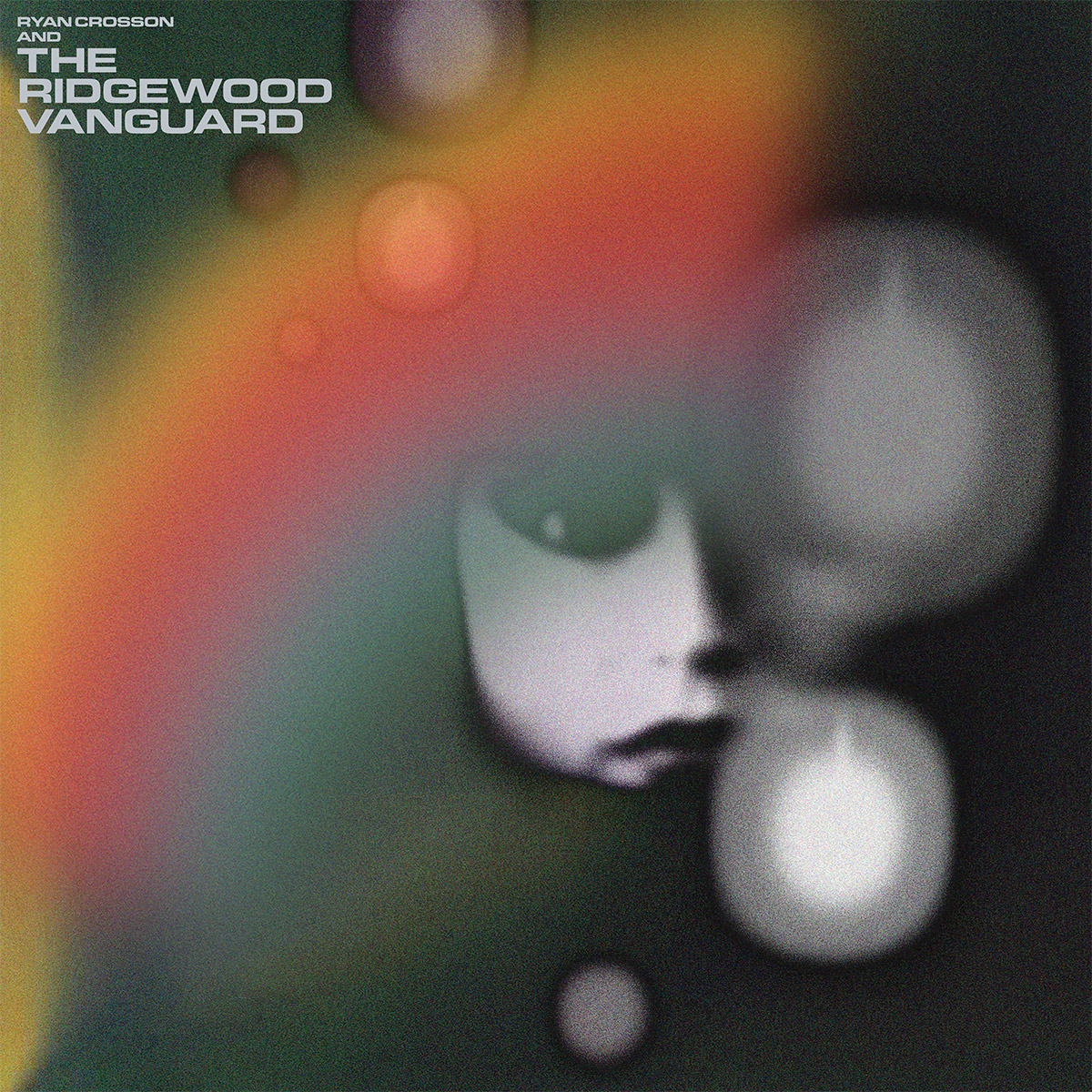
EG: And speaking about visual aspects… What do you think about the current trend that has seen these larger-than-life visuals take center stage? Are they overwhelming the musical aspect instead of just “enhancing” the musical experience? Are they the future of electronic music?
Ryan Crosson: I love what Max Cooper is doing and can’t wait to see it in person. He’s doing both large and small installations, and I do think that could be an interesting future for special one-off shows. 400-500 person venues or settings with full immersive either visuals or sets can be something completely exciting, unique, and intimate at the same time, but I think going to that type of event all the time could be exhausting… especially having to endure all the people who would rather hold up their phones than be immersed in an experience. How do we navigate that aspect in the future?
I think the intent by artists like Max, Richie Hawtin, etc. comes from a good place. They’re trying to push boundaries. If people push and it doesn’t work vibe-wise or technically 100% of the time, I appreciate the risk-taking nonetheless. At least they’re taking a risk instead of hopping from festival to festival playing crappy 90’s edits (you know who you are). I’ve always said if you’re a big-name artist, it’s almost your job to take risks and push this whole scene further in a positive way. Then once the “product” (gross to say product, isn’t it?) is out there, it’s up to the attendee/consumer to decide if you want to attend or not. But I appreciate people putting it on the line so to speak, whether their music or act speaks to me or not. I will say though… nothing beats a dark, sweaty club with a tiny light over the DJ and only the occasional strobe flash. Simple always works.
“Nothing beats a dark, sweaty club with a tiny light over the DJ and only the occasional strobe flash. Simple always works”
EG: What’s next for Ryan Crosson? Where can your fans catch you next? What’s still in store for the rest of the year?
Ryan Crosson: I’m excited for the release of this album in late October and to bounce around the States before the end of the year. I’m reuniting with friends Bill Patrick and Alexi Delano soon, who I haven’t seen in quite some time. Those are always good times. After that, I’m slipping back into Daddy mode to welcome our second child into the world. I think I have another year of taking one-off gigs or special occasions here and there, and then I’d like to ramp up my touring again. That will coincide with an increased volume of releases. I’ve been holding a lot back to give this album space.
EG: Thank you for your time, Ryan! We’re excited to see what’s in store for you. Take care!
Ryan Crosson: Thank you, EG!
Ryan Crosson’s ‘We Can Only Ever Be How We Are’ is out now via Frontier Recordings. Stream and download here.
Follow Ryan Crosson: Spotify | Soundcloud | Instagram | Facebook


